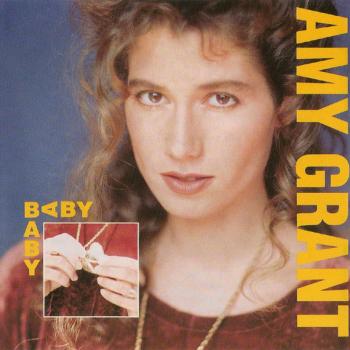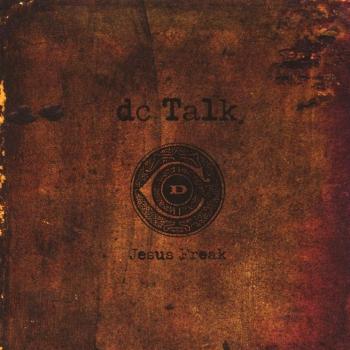
This weekend commemorates the 20th anniversary of the 9/11 terror attacks. The day changed the focus of the nation and irrevocably altered the mindset of U.S. citizens, both those who endured a tangible loss and those whose sense of security was forever shattered.
Sept. 11 also caused seismic shifts in popular culture. TV shows and films had to figure out how to address the nightmare. Some did it directly, such as Rescue Me or United 93. 24 didn’t directly address 9/11, but its war on terror plotline was informed by real events. Steven Spielberg’s War of the Worlds traffics heavily in 9/11 imagery in its attack sequences.
Music was one of the first art forms to respond. A song, of course, can be produced quickly. Music also has a direct line to our emotions in a way few other art forms do. Songs quickly popped up to assuage fears and rally our resolve. The Christian music industry played a role in this cultural response, sometimes lending perspective and other times stoking of our worst impulses.
Cheerleading America
Christian music supergroup dc Talk was nearly a year into its self-imposed intermission when the 9/11 attacks occurred. But Toby, Mike and Kevin reunited for the single “Let’s Roll,” inspired by Todd Beamer’s rallying cry. The song is, fittingly, a more subdued entry, with none of the “Jesus Freak” energy. Instead, it’s a collection of banal platitudes such as “let’s roll, let’s fight” and references to the “red, white and blue.” There’s also a recitation of the Lord’s prayer, and allusions to “mercy, truth and love,” perhaps as a reminder that, yes, this is a Christian song.
Similarly, Michael W. Smith’s “There She Stands” is a love letter to the American flag, with lyrics calling Old Glory a “faithful friend.” There’s nothing wrong with the song, per se; it’s a perfectly fine bit of patriotism. But what’s troubling is that Smith included it as the closing song on his Worship Again album. He follows up songs of with a love letter to America.
To be fair, it’s been nearly two decades since these songs were released. And at the time, perhaps I felt differently about the intertwining of praise and worship with patriotism. Todd Beamer was a Christian and his story still inspires; I can imagine dc Talk’s song feeling like a fitting honor at the time. We’ll get to Smith’s previous Worship album in a little bit. But at a time when our feelings were still raw, perhaps a bit of misty-eyed inspiration was what we were asking for. Still, with the benefit of hindsight, this marrying of Christianity with jingoism feels off-putting, particularly when we see how the evangelical world turned faith and politics into an unseemly marriage.
Hope in darkness
In the days following 9/11, the song I listened to on repeat was one that wasn’t even released until two days following the event. Steven Curtis Chapman’s Declaration album features a song titled “God is God,” a reminder that Christians are not exempt from the hardships, tears and suffering of the world.
Many contemporary Christian songs offer closure, answers and assurance. But a quick read of the Psalms shows that’s not the experience the Bible promises. We navigate a world where pain and suffering exist. Sometimes the answers are more ambiguous than we prefer. There’s a long history of songs of lament that is missing in our overly positive praise. Chapman’s song was one of the few to lean into the wound, acknowledge hurt and promise hope even if it couldn’t promise answers. I imagine I’m far from the only one who turned to it as the tears kept falling and any hints of things improving were in short supply.
Similarly, Amy Grant’s “I Don’t Know Why” entered into the pain without promising easy answers. Where Smith and dc Talk seemed eager to unite us all in a love for America, Chapman and Grant’s approaches seemed more honest, tender and self-aware. Christianity transcends nationality; the promise of Christ is not that America will prevail or that we will win wars. It’s that there’s comfort for mourners, and hope for the dying. The two songs didn’t get the constant airplay of the more patriotic pieces, but I imagine they had more play in moments of quiet.
The worship movement
Perhaps no Christian music movement was more influential than the modern worship movement, which is still going. One of its first major albums was Michael W. Smith’s Worship. The album was actually released on Sept. 11, 2001, and featured “Above All,” “The Heart of Worship,” “Draw Me Close” and “Awesome God.”
I’ll admit to some cynicism when it comes to modern worship. It often seems like a way to exploit spirituality by stringing together trite lyrics that sound meaningful and then having different artists record them to make some money. There have been times when I’ve wondered whether the modern worship movement is an evangelical attempt to fight fundamentalism with fundamentalism. There have been too many times these songs have been used, much like WWJD bracelets, as a way to identify your tribe instead of for introspection.
Yet, I also can’t deny that some of these songs are deeply meaningful to me. Smith’s version of “Above All” is beautiful and has been a vital tool for my own prayer times. Even for all the songs that make me cringe, music by Chris Tomlin, Matt Redman, the Gettys and others has helped me through soul-searching and provided peace. If the worship movement arose to remind ourselves of what we believed, replacing “Jesus is my boyfriend” songs with some ancient truths, maybe that’s not bad. Maybe we needed some artists to give us a shoulder to cry on; and maybe the worship artists provided a reminder to lift our eyes and remember where our hope leads us.












